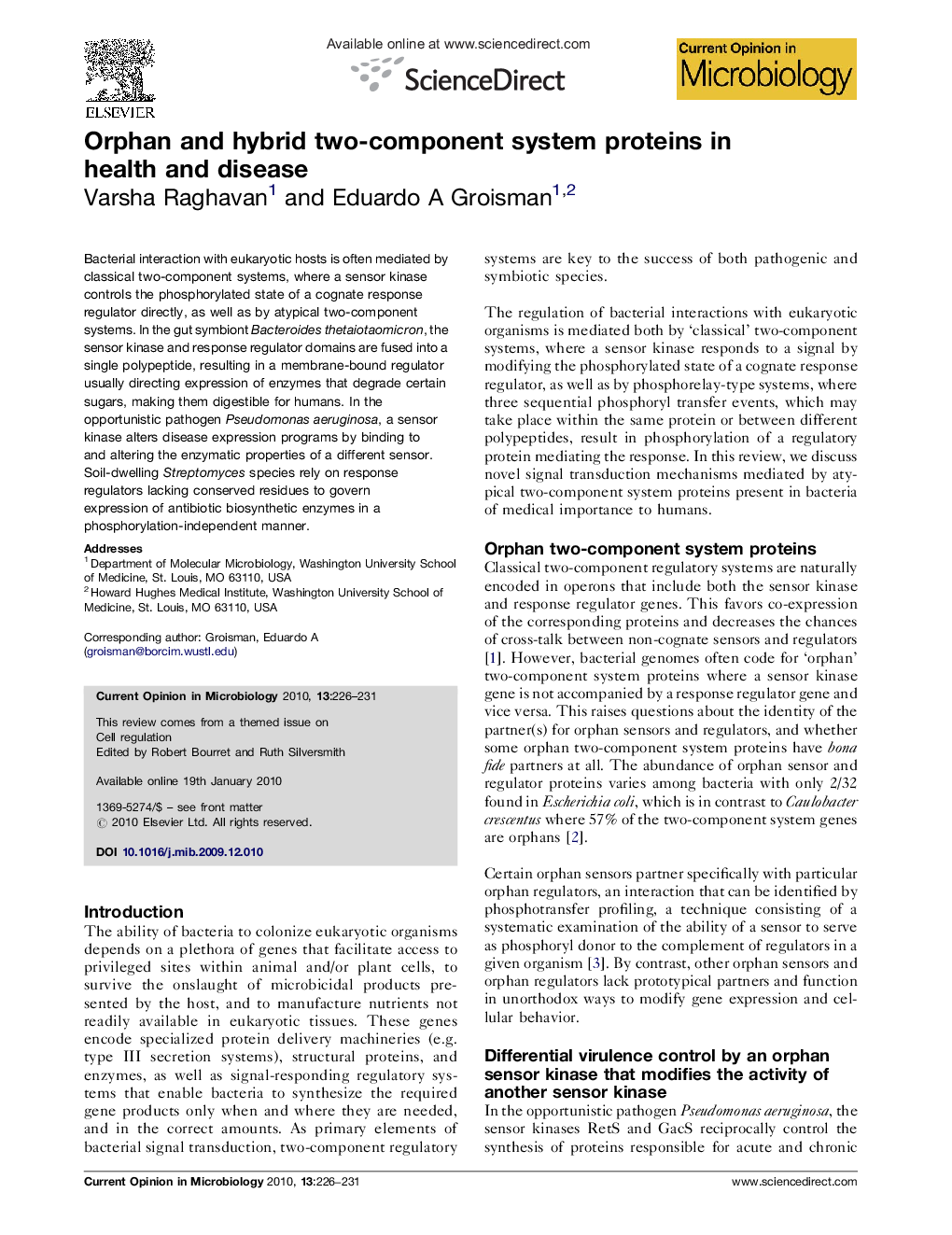| Article ID | Journal | Published Year | Pages | File Type |
|---|---|---|---|---|
| 3399334 | Current Opinion in Microbiology | 2010 | 6 Pages |
Bacterial interaction with eukaryotic hosts is often mediated by classical two-component systems, where a sensor kinase controls the phosphorylated state of a cognate response regulator directly, as well as by atypical two-component systems. In the gut symbiont Bacteroides thetaiotaomicron, the sensor kinase and response regulator domains are fused into a single polypeptide, resulting in a membrane-bound regulator usually directing expression of enzymes that degrade certain sugars, making them digestible for humans. In the opportunistic pathogen Pseudomonas aeruginosa, a sensor kinase alters disease expression programs by binding to and altering the enzymatic properties of a different sensor. Soil-dwelling Streptomyces species rely on response regulators lacking conserved residues to govern expression of antibiotic biosynthetic enzymes in a phosphorylation-independent manner.
